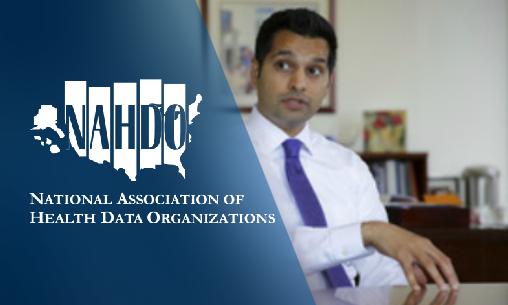
The National Association of Health Data Organizations (NAHDO) held their 4-day annual meeting virtually over the course of 2 weeks this year (August 17-18 and August 25-26). I was invited to present on the first day of the conference within a session titled “Building a Broader Vision of Healthcare Data: A Multi-Disciplinary Approach to Understanding and Leveraging SDOH Data.” It brought together individuals and groups that are leveraging social determinants of health data to drive policy that can improve health outcomes. As part of the session, I participated on a panel titled “How Data Can Inform Social Determinants of Health (SDOH) Policy.” I was specifically asked to discuss how data from the electronic health record can measure the impact of SDOH on health and some of the challenges associated with using these data for that purpose.
I was specifically asked to discuss how data from the electronic health record can measure the impact of SDOH on health and some of the challenges associated with using these data for that purpose.
I used this opportunity to highlight my own EHR focused methodological research and applied research on how gentrification impacts the health of Durham residents. I also highlighted work led by others at Duke, including work led by Dr. Ebony Boulware in developing and implementing the Durham Compass, a website that allows community members to visualize SDOH and neighborhood level health data, and research led by Dr. Dinushika Mohottige that aims to recruit focus groups to identify the most pressing SDOH. The presentation was well received and timely given the increasing focus on understanding how upstream social drivers have downstream health impacts.